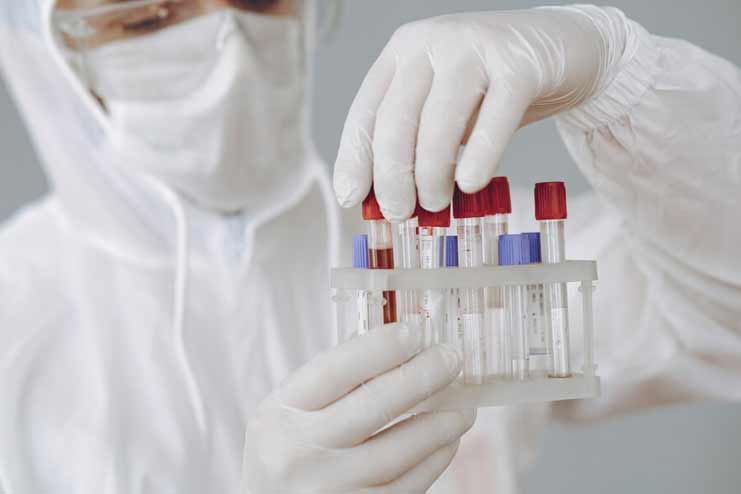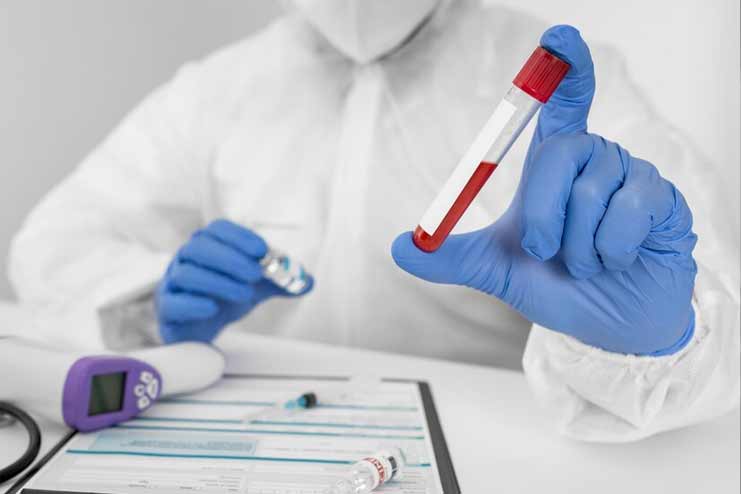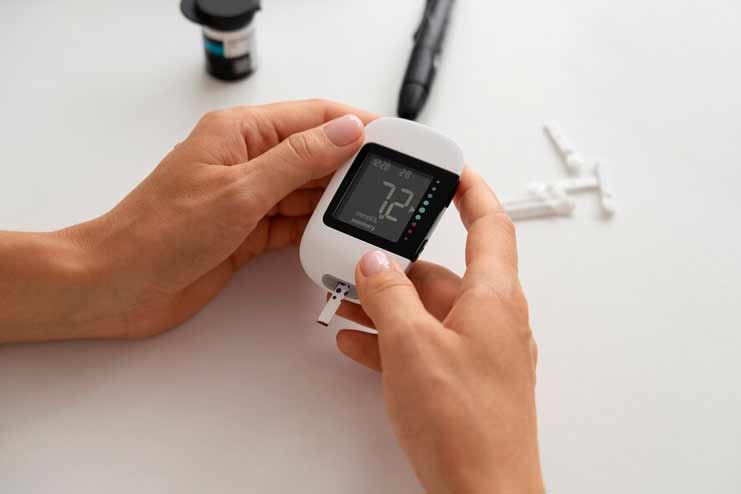Affiliate Disclaimer
Some links in this article are affiliate links. We may earn a small commission if you make a purchase through these links, at no extra cost to you. We only recommend products we find useful to our readersDiabetes is among the most prevalent diseases globally. You might be surprised to learn that many people are pre-diabetic without even realizing it. Consequently, their blood glucose levels can be completely out of control.
There are several effective methods if you are searching for ways to lower Hemoglobin A1C naturally.
By the end of this article, you will have a solid understanding of effective strategies to reduce your A1C levels.
What is Hemoglobin A1C?

Doctors recommend this test for an effective diagnosis of prediabetes, Type 1 diabetes, and Type 2 diabetes. It offers an effective way to assess the severity of diabetes in a patient.
Hemoglobin A1C is a blood test that estimates blood glucose levels over the preceding two to four months. If the A1C levels are too high, it means blood sugar levels are out of control.
Doctors may prescribe medication, and intervention is required to find natural and effective ways to lower A1C.
How Does This Test Work?

There are several factors involved in conducting the hemoglobin A1C test. This test primarily determines how well the body manages blood glucose levels. It also measures the average percentage of sugar-bound hemoglobin in the blood sample.
If you are wondering about the correlation between hemoglobin and blood glucose levels, here’s how it works:
When glucose from food enters the bloodstream, it tends to bind to the red blood cell protein known as hemoglobin. The higher the glucose levels in the body, the higher the level of Hemoglobin A1C in the test results.
Since red blood cells have a lifespan of about four months, this test provides a comprehensive view of glucose levels over the past two to four months. The test can be performed using the pinprick technique or by drawing blood the traditional way.
Why Is It Necessary to Keep HbA1C Levels Low?

Studies have shown that maintaining controlled A1C levels helps slow the progression of diabetes and reduces the risks and complications.
The American Diabetes Association recommends keeping HbA1C levels below 6.5%. Often, doctors conduct this test twice before confirming a diagnosis of diabetes.
If A1C levels are persistently above 6.5% on both occasions, it is reasonable to conclude that the person is diabetic.
How to Lower HbA1C Levels Naturally?
As previously mentioned, HbA1C levels reflect how well blood glucose levels are managed over a period of time. If your A1C levels are high, it is likely due to poor lifestyle habits. It is crucial to avoid actions that could lead to insulin spikes in the body.
Uncontrolled insulin and blood glucose spikes often contribute to the problems associated with elevated A1C levels.
Let’s explore some natural ways to manage and improve this condition.
1. Come Up With a Plan

Having a plan is crucial for effectively lowering your A1C levels without medication. Managing hemoglobin A1C naturally requires consistent effort, and it’s essential to plan ahead to gain a clear understanding of how to achieve your goal.
By making a plan, you can outline the steps necessary to reduce your A1C levels, such as:
- Losing weight
- Eating healthy
- Increasing physical activity
- Managing stress
It’s important to set realistic expectations and avoid overburdening yourself. Planning also allows you to set future goals, helping you start with smaller, manageable objectives and gradually work up to larger ones.
2. Eat Healthy

What you eat significantly impacts your glucose levels. To manage diabetes, it’s essential to adopt a healthy eating routine.
There are various interpretations of what constitutes a healthy diet, often influenced by individual needs and professional advice. Generally, when we talk about eating healthy, we refer to:
- Avoiding simple carbohydrates, which can cause spikes in blood glucose levels
- Incorporating balanced meals with whole grains, lean proteins, and healthy fats
Consulting a certified nutritionist is highly recommended if you’re unsure about the best diet for managing your blood glucose levels. They can provide personalized guidance to help you make informed dietary choices and effectively lower your A1C levels.
3. Lead a More Active Lifestyle

The most effective way to combat high glucose levels and lower hemoglobin A1C is by adopting a more active lifestyle.
You don’t need to engage in intense workouts or strenuous exercises to make a difference. Instead, focus on incorporating physical activity into your daily routine. Whether it’s a rigorous gym session or something as simple as going on a walk with your dog, the key is to stay active.
The goal is to move more and be less sedentary. By finding ways to keep yourself active, you can effectively manage your glucose levels and improve your overall health.
4. Monitor Your Blood Glucose

The hemoglobin A1C test is only conducted every 3-4 months. But if you want to manage your glucose levels, consistently monitoring your blood sugar with an at-home glucometer might help.
While this might not seem significant, regular monitoring can help you quickly identify and address any abnormalities, allowing you to take corrective actions to manage spiking levels.
Investing in a glucose monitoring device and checking your levels weekly or biweekly is important. This will better understand your glucose trends and help you make timely adjustments to your management plan.
5. Come Up with a Diabetes Management Plan

Another crucial aspect to consider is developing an effective diabetes management plan. If your HbA1C levels are high, it may be due to diabetes, which is manageable with the right approach.
To lower your A1C levels effectively, having a comprehensive diabetes management plan is essential. This plan should include everything from your doctor’s contact information to your prescribed medications.
An effective management plan helps you handle your condition smoothly and without complications. Key elements to include in your plan are:
- Doctor contacts
- Emergency contacts
- Medication
- Regular tests
- A strategy to manage blood glucose levels
It’s vital to ensure that you have all necessary contacts and protocols in place so that everyone involved is aligned and informed. This cohesive approach is crucial for successful diabetes management.
6. Choose Your Carbs Wisely

It is well known among diabetes patients that carbohydrates can be their worst enemy. If you want to lower your hemoglobin A1C levels, it’s crucial to be selective about the carbohydrates you consume.
Opt for complex carbohydrates, which take longer to break down and digest, keeping you fuller for longer. In contrast, simple and refined carbohydrates are broken down quickly, causing spikes in sugar levels followed by immediate loss of energy. This can lead to feelings of lethargy, increased hunger pangs, and inadequate satiety.
To effectively lower your A1C levels, stick to complex carbs and avoid simple and refined ones.
7. Focus on Portion Size

Portion size is a crucial factor in naturally lowering A1C levels. It’s important to manage portion sizes and ensure that your meals are nutritionally balanced.
By fixing portion sizes, you can avoid overeating, which is often a significant cause of uncontrolled blood glucose levels.
Eat five small meals rather than 3 large ones.
8. Lose Weight

Obesity is one of the most common causes (R) of uncontrolled blood glucose levels and the risk of developing diabetes.
If you have struggled to lose weight on your own, seek guidance from a professional trainer. They can help you set clear goals and stay on track.
Losing weight can prevent unnecessary spikes in blood glucose levels. Begin with a healthy diet and maintain an active lifestyle, as this combination effectively reduces excess body fat.
9. Practice Mindfulness

Being present in everything you do is key to effectively addressing issues like overeating.
Practicing mindfulness and concentrating for a few moments can help you manage these challenges more effectively. Dedicate 5-10 minutes each day to meditate without distractions.
This will help bring more focus to your goals and prevent setbacks in achieving them.
Conclusion
There are lots of strategies that one can employ to lower their hemoglobin A1C levels, and the methods above are just a few of the most effective ways. Successfully managing your A1C will require commitment and consistent effort.
It is important to note that this is not a sprint, but a marathon. It might get overwhelming for a while, but a sharper focus on the goals and a positive attitude toward the circumstances will pull everything back in place.
Gain a deep understanding of your body, make changes, and practice good habits. Maintaining a balanced, active life is the key to lowering your A1C levels.
-
June 2019Written by Somapika D
-
Oct 2024Edited by Lakshmi Gayatri
In this Article

















